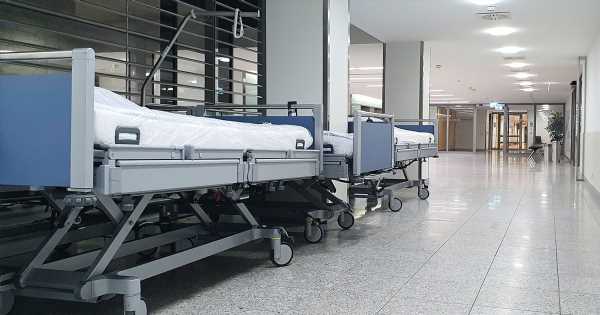prescription cough syrup with codeine canada
Lubbock, Texas based UMC Health System announced this week that it will deploy artificial intelligence to help keep its patients and employees safer from gun violence.
The technology is from ZeroEyes, which develops systems for firearm detection. In as little as three to five seconds, sildenafil 50 mm AI software scanning real-time video footage can alert the 24/7 ZeroEyes Operation Center, which is staffed by trained U.S. military and law enforcement veterans. It gives an image of the weapon and information about gun type and last known location to local staff and UMC Health System’s own security team.
WHY IT MATTERS
ZeroEyes, which holds the U.S. Department of Homeland Security SAFETY Act Designation, is the latest addition to UMC’s multilayered security system, which also includes an in-house police force, 100% armed security officers, scanners, strategically located panic buttons and cameras throughout the campus, according to an announcement Tuesday from the health system.
UMC has 5,000 employees and 500 beds. It is the primary teaching hospital for the Texas Tech University Health Sciences Center. It is also the only Level I Trauma Center serving West Texas and Eastern New Mexico.
Using AI with existing video technology to detect what ZeroEyes references as “the illegal brandishing of a gun near or in an occupied area or building” and accomplish situational awareness is part of an effort to enhance security and increase safety while maintaining the hospital’s accessibility, the hospital said.
“We naturally think of hospitals as places of healing, so it is upsetting to acknowledge that they can also be the settings of gun-related tragedies,” said MikeLahiff, CEO, and cofounder of ZeroEyes.
THE LARGER TREND
It’s not uncommon to scan news headlines and find that doctors, nurses and other clinicians at private practices, clinics and hospitals have been named as victims of gun violence. The effects on healthcare providers extend far beyond the victims, causing disruptions in patient care and trauma for colleagues, patients and visitors affected by active shooter incidents.
Violence in healthcare spaces generally spiked during the pandemic and has increased spending on security and advanced weapons detection to protect the safety of employees and patients.
The American Journal of Managed Care found that seven out of 10 emergency physicians reported being physically assaulted at work and that 44% percent of nurses reported experiencing physical violence during the COVID-19 pandemic, according to Michael Dowling, president and CEO of Northwell Health.
“With U.S. healthcare facilities accounting for 18.3 percent of GDP and 22 million jobs (2021), the environment represents a unique organization-wide exposure that demands protection,” he wrote in a Healthcare IT News contribution, AI can help keep healthcare employees safe, last month.
“When unmitigated gun violence – and violence in general – goes unchecked in any of our facilities, the physical and psychological impact can be severe, lasting, even devastating. Beyond injuries and tragic loss of life, the fallout for unchecked gun violence creates worker anxiety, loss of productivity and workdays and significant legal and reputational losses,” he said.
A more recent survey found that 40% of healthcare workers have experienced at least one incident of workplace violence within the past two years. Nursing staff experienced violence most frequently, according to Premier Inc., a healthcare improvement company.
RTLS technology, which enables staff to discreetly send panic alerts from active-RFID location-enabled badges, is also used to alert safety personnel to protect healthcare workers.
ON THE RECORD
“UMC is the first hospital in the region to employ AI-based gun detection security measures,” said Mark Funderburk, chief executive officer of UMC, about the ZeroEyes technology deployment. “Our goal is solid – to ensure our healthcare team and patients feel safe and are safe.”
Andrea Fox is senior editor of Healthcare IT News.
Email: [email protected]
Healthcare IT News is a HIMSS Media publication.
Source: Read Full Article
